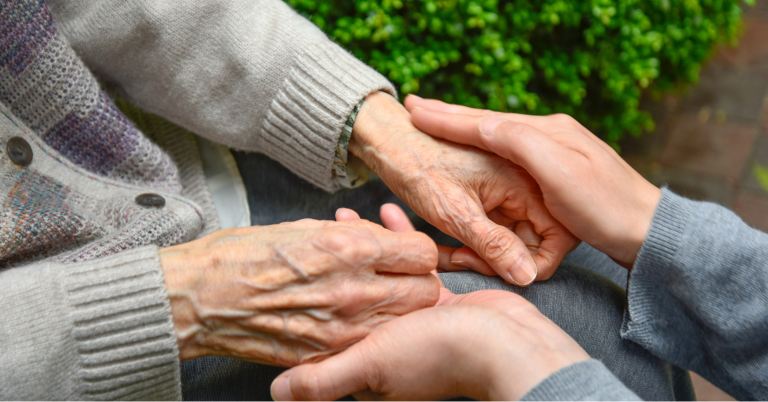Dad’s Parkinson’s is Getting Worse: Navigating Progressive Care Needs with Understanding and Hope
Watching your dad’s Parkinson’s disease progress can be one of the most heartbreaking experiences a family can face. The tremors may be more noticeable now, his movement slower and more deliberate, or perhaps his voice has become softer and harder to understand. Each change serves as a reminder that this progressive condition is continuing its course.
If you’ve noticed that your dad’s Parkinson’s symptoms are worsening, you’re likely experiencing a complex mix of emotions – sadness about the changes you’re seeing, worry about what’s to come, and perhaps frustration about feeling helpless to stop the progression. These feelings are completely normal and shared by many families navigating this challenging journey.
While Parkinson’s disease is indeed progressive, it’s important to understand that progression doesn’t mean loss of hope or quality of life. With proper medical management, adaptive strategies, and appropriate support, many people with Parkinson’s continue to live fulfilling lives for years after diagnosis.
The key is understanding how to adapt care and support as the disease progresses, ensuring that your dad receives the specialized attention he needs while maintaining his dignity, comfort, and connection to the things that matter most to him.
Understanding Parkinson’s Disease Progression
Parkinson’s disease affects each person differently, and the progression can vary significantly from one individual to another. While some people experience rapid changes, others may have symptoms that progress very slowly over many years. Understanding what to expect can help families plan and adapt more effectively.
The progression of Parkinson’s typically involves changes in motor symptoms like tremor, rigidity, and slowness of movement, as well as non-motor symptoms that can include cognitive changes, sleep disturbances, mood changes, and digestive issues. As the disease advances, daily activities that were once simple may become more challenging or time-consuming.
However, it’s important to remember that progression doesn’t happen overnight, and there are many ways to manage symptoms and maintain quality of life throughout the journey. Medical treatments continue to evolve, and supportive therapies can make a significant difference in managing both the physical and emotional aspects of the disease.
Recognizing Changes That Signal Progression
Motor Symptom Changes
As Parkinson’s progresses, you may notice that your dad’s tremor becomes more pronounced or affects different parts of his body. Movement may become slower and more difficult to initiate, and tasks that require fine motor skills, like buttoning shirts or writing, may become increasingly challenging.
Balance and walking often become more affected as the disease progresses. Your dad might develop a shuffling gait, have trouble turning, or experience episodes where his feet feel “frozen” and difficult to move. These changes can significantly impact safety and independence.
Muscle rigidity may increase, leading to stiffness and discomfort. This can affect posture, facial expressions, and overall comfort throughout the day.
Non-Motor Symptoms
Many families are surprised to learn about the non-motor symptoms of Parkinson’s, which can sometimes be more challenging than the movement-related symptoms. These might include:
- Cognitive Changes: Some people with Parkinson’s experience changes in thinking, memory, or decision-making abilities. These changes can range from mild difficulties with multitasking to more significant cognitive impairment.
- Sleep Disturbances: Sleep problems are common in Parkinson’s and may include difficulty falling asleep, frequent awakening, vivid dreams, or excessive daytime sleepiness.
- Mood and Behavioral Changes: Depression, anxiety, and apathy are common in Parkinson’s and can significantly impact quality of life. Some people may also experience hallucinations or other behavioral changes.
- Speech and Swallowing: Voice changes, including speaking more softly or with less expression, are common. Swallowing difficulties can also develop, which may affect nutrition and safety.
Adapting Care Strategies as Symptoms Progress
Medication Management Becomes More Complex
As Parkinson’s progresses, medication management often becomes more complex and crucial. Your dad may need multiple medications with specific timing requirements, and the effectiveness of medications may fluctuate throughout the day.
Working closely with a neurologist who specializes in movement disorders is essential for optimizing medication management. This may involve adjusting dosages, trying new medications, or exploring advanced treatment options like deep brain stimulation for appropriate candidates.
Keeping detailed records of your dad’s symptoms, medication timing, and daily functioning can help healthcare providers make informed decisions about treatment adjustments. Many families find it helpful to use a symptom diary or smartphone app designed for Parkinson’s management.
Home Environment Modifications
As mobility and balance change, the home environment may need modifications to ensure safety and maintain independence. This might include:
- Safety Enhancements: Installing grab bars, improving lighting, removing tripping hazards, and ensuring clear pathways throughout the home.
- Mobility Aids: Considering assistive devices like walking aids, specialized utensils, or adaptive equipment that can help with daily tasks.
- Bathroom Adaptations: Making modifications like raised toilet seats, shower chairs, or walk-in tubs that can improve safety and independence.
- Technology Solutions: Exploring assistive technologies that can help with communication, medication reminders, or emergency response.
Daily Routine Adaptations
Establishing consistent daily routines can be particularly helpful for people with Parkinson’s. This might include timing activities around medication schedules, allowing extra time for tasks, and breaking complex activities into smaller, manageable steps.
Many people with Parkinson’s find they have “good” and “bad” times of day when symptoms are more or less pronounced. Scheduling important activities during better times and allowing for flexibility during more challenging periods can improve overall functioning and reduce frustration.
The Importance of Specialized Care
Working with Movement Disorder Specialists
As Parkinson’s progresses, working with healthcare providers who specialize in movement disorders becomes increasingly important. These specialists have expertise in the latest treatment options and can provide more nuanced care than general practitioners.
Movement disorder specialists can also provide valuable guidance about timing for advanced treatments, clinical trial opportunities, and comprehensive symptom management strategies that address both motor and non-motor symptoms.
Multidisciplinary Care Teams
The most effective care for progressive Parkinson’s often involves a team of specialists, including neurologists, physical therapists, occupational therapists, speech therapists, social workers, and nutritionists. Each professional brings unique expertise to address different aspects of the condition.
This team approach ensures that all aspects of your dad’s health and well-being are addressed, from medication management to maintaining physical function, communication abilities, and nutritional status.
Physical and Occupational Therapy
Physical therapy can be particularly beneficial for people with Parkinson’s, helping maintain strength, flexibility, balance, and mobility. Specialized programs like LSVT BIG (for movement) and LSVT LOUD (for speech) are specifically designed for people with Parkinson’s.
Occupational therapy can help your dad maintain independence in daily activities by teaching adaptive techniques and recommending assistive devices that can make tasks easier and safer.
When Additional Support Becomes Necessary
Recognizing Changing Care Needs
As Parkinson’s progresses, many families reach a point where additional support becomes beneficial or necessary. This doesn’t represent failure on your part – it reflects the reality of a progressive condition and the importance of ensuring your dad receives appropriate care.
Signs that additional support might be helpful include difficulty managing medications independently, increased fall risk, challenges with meal preparation, difficulty with personal care tasks, or social isolation due to mobility limitations.
Professional Care Options
- Companion Care: Non-medical assistance can help with daily activities, provide transportation to appointments, and offer companionship that combats the isolation that sometimes accompanies Parkinson’s.
- Skilled Nursing Care: As medical needs become more complex, skilled nursing services can provide medication management, health monitoring, and coordination with healthcare providers.
- Specialized Parkinson’s Care: Some care providers have specific training in Parkinson’s care and understand the unique challenges and needs associated with the condition.
- Respite Care: Providing temporary relief for family caregivers, respite care allows primary caregivers to rest and recharge while ensuring your dad receives quality care.
Supporting the Whole Family
Caregiver Support and Education
Caring for someone with progressive Parkinson’s can be physically and emotionally demanding. Family caregivers need support, education, and respite to provide sustainable care while maintaining their own health and well-being.
Many communities offer support groups specifically for Parkinson’s caregivers, providing opportunities to connect with others who understand the unique challenges. Educational programs can also help caregivers learn about the disease and develop effective care strategies.
Maintaining Relationships and Quality of Life
While Parkinson’s brings challenges, it’s important to remember that your dad is still the same person with the same interests, relationships, and desire for meaningful experiences. Finding ways to adapt activities and maintain connections can significantly impact quality of life.
This might involve modifying favorite activities to accommodate current abilities, exploring new interests that work within current limitations, or finding creative ways to maintain social connections and family relationships.
Planning for the Future
Advance Care Planning
Progressive conditions like Parkinson’s make advance care planning particularly important. This includes not only legal documents like wills and advance directives, but also conversations about preferences for care, living arrangements, and end-of-life wishes.
Having these conversations while your dad can fully participate in decision-making ensures that his wishes are known and respected as the disease progresses.
Financial Planning
The long-term costs associated with Parkinson’s care can be significant. Working with financial advisors who understand long-term care needs can help families plan for future expenses and explore available resources and benefits.
This might include exploring long-term care insurance, veteran’s benefits, or other resources that can help offset care costs.
Finding Hope and Maintaining Connection
While watching your dad’s Parkinson’s progress is undoubtedly difficult, it’s important to remember that this journey can still include moments of joy, connection, and meaning. Many families find that facing challenges together actually strengthens relationships and creates opportunities for deeper understanding and appreciation.
The key is focusing on what remains possible rather than dwelling on what has been lost. With appropriate support, medical management, and adaptive strategies, many people with Parkinson’s continue to experience quality of life and maintain important relationships throughout their journey.
Research into Parkinson’s disease continues to advance, with new treatments and therapies being developed regularly. While we await breakthrough treatments, there is much that can be done to manage symptoms and maintain quality of life.
At Reflections Management and Care, we understand the unique challenges families face when caring for a loved one with progressive Parkinson’s disease. Our experienced team includes professionals with specialized training in Parkinson’s care who can provide comprehensive support tailored to your dad’s changing needs.
From medication management and coordination with movement disorder specialists to companion care and family support, we’re here to help you navigate this journey with knowledge, compassion, and hope. Contact us today to learn how we can support your family and help your dad continue living with dignity and quality of life.








